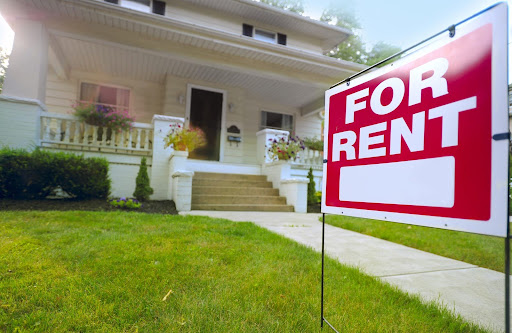
Homeowners living within planned communities will undoubtedly come across HOA rental restrictions. These restrictions are designed to protect the character of an HOA and preserve property values. However, there is a limit to what associations can restrict, particularly in California.
What Are HOA Rental Restrictions?
Homeowners association rental restrictions cover a range of policies and regulations that dictate how homeowners can rent out their properties within the community. The association’s governing documents, such as the Covenants, Conditions, and Restrictions (CC&Rs), typically outline these restrictions. They may include provisions regarding rental caps, residency requirements, lease terms, and more.
HOA rental restrictions are crucial for maintaining the integrity and stability of residential communities. By regulating rental activities, HOAs can mitigate a wide array of potential issues, including the following:
1. Transient Tenants
Transient tenants, who frequently change, might have a different commitment to the community than homeowners. This can disrupt the neighborhood’s stability and cohesion. Moreover, these tenants may not engage in community activities or contribute to its well-being, leading to decreased community engagement.
2. Excessive Turnover

Excessive turnover, with renters coming and going frequently, can make it hard for the community to build relationships and maintain a sense of belonging. Permanent residents also don’t like witnessing an endless stream of new faces. They prefer to live in a community where they know their long-term neighbors.
3. Security Concerns
Security concerns may arise because renters might not be as invested in keeping the community safe as homeowners. Additionally, tenants tend to exhibit less care when dealing with HOA property, resulting in more property damage.
4. Lack of Exclusivity
Many rentals can create a perception that the community lacks exclusivity and is less desirable. This could impact property values and homeowner satisfaction.
5. Insurance Issues
The insurance industry notices when too many units in a community are rented out, usually around 30-35%. Insurance companies have found that HOAs with a higher percentage of rentals often have more problems and claims.
Because of this, associations with too many rentals have to pay more for insurance. Lenders also care about how many units are rented out because it can lower property values.
Sample HOA Rental Restrictions
Rental restrictions can vary from one association to another. Some types of HOA rental restrictions are more common than others. Here are some methods an HOA can use to limit rentals.
HOA Rental Caps
Rental caps limit the percentage of units within the community that can be rented out at any time. For example, an HOA may impose a rental cap of 30%. No more than 30% of the total units can be leased simultaneously.
Rental caps help maintain a healthy balance between owner-occupied and rental properties within the community, preventing an excessive concentration of rental units that could disrupt the neighborhood’s dynamics.
Effective January 1, 2021, any rental caps exceeding 25% became unenforceable in California under Civil Code Section 4741. The law mandated associations with stricter rental caps to revise their governing documents to adhere to the 25% limit.
Some associations with no pre-existing rental caps may wish to add one. As per Civil Code Section 4740, newly imposed restrictions apply solely to owners who make their purchases after recording the restrictions.
Residency Requirements
Residency requirements, also known as ownership requirements, mandate that homeowners must own or reside in their units for a specified period before renting them out. This requirement encourages owner-occupancy and fosters a sense of community among residents.
However, in California, such a requirement is invalid and unenforceable. Under Civil Code Section 4741, HOAs can no longer mandate buyers to own and reside in their unit for a specified duration before they can rent it out.
Minimum Duration
Lease term requirements specify the minimum duration for rental agreements within the community. Minimum lease terms help prevent excessive turnover and maintain a consistent community atmosphere.
Can an HOA restrict short-term rentals? In California, an association can have HOA short-term rental restrictions. Civil Code Section 4741 explicitly permits governing documents to forbid transient or short-term rentals lasting 30 days or less. This statute solidifies the precedent set by the 2008 Mission Shores v. Pheil case.
Lease Agreement Required
HOAs may require homeowners to provide a copy of the lease agreement for any rental transactions within the community. This requirement ensures rental activities comply with the association’s rules and regulations. It also allows the HOA to monitor and enforce compliance effectively. By requiring a formal lease agreement, HOAs can protect the interests of both homeowners and the community.
No Rentals at All
In some cases, HOAs may prohibit rentals altogether, requiring all homeowners to occupy their units as primary residences. This restriction is less common but may be implemented in communities that value owner-occupancy. In California, however, Civil Code Section 4741 does not allow HOAs to prohibit or unreasonably restrict owners from renting out their homes.
Are HOA Rental Restrictions in California Allowed?
Under Civil Code Section 4741, homeowners associations may not prohibit or unreasonably restrict rentals within the community. Any provision that has the effect of prohibiting rentals is also not allowed. The same rules apply to amendments to an HOA’s governing documents.
That said, there are rental restrictions that California law permits. These include placing a rental cap of 25% or higher and prohibiting short-term rentals for 30 days or less.
Can HOA Change Rental Rules After Purchase?
Homeowners associations generally can amend their governing documents. However, in California, certain laws apply to rental restrictions.
According to Civil Code Section 4740, no governing document or amendment prohibiting renting a separate interest shall apply to a homeowner unless the provision or amendment was effective before the owner bought the individual interest. In other words, if an HOA adopts a regulation prohibiting rentals after an owner purchased their unit, that owner is not bound by that regulation.
If HOAs want to introduce rental restrictions, they should do so by amending the CC&Rs with approval from the members. These restrictions become effective once recorded and apply to all future owners.
Sometimes, the board of directors may enact certain rental regulations without requiring a vote from the membership. However, boards should seek guidance from legal counsel before proceeding with any changes.
Can HOA Screen Potential Tenants?

Some associations have the authority to review potential tenants before leasing a property within the community. This process usually involves members submitting rental applications to the board for approval before signing a lease.
Before implementing such a policy, an HOA board should ensure it aligns with state laws. In California, Civil Code Section 4740 requires owners to provide an applicant’s name and contact details to the board before leasing the property. However, whether an HOA can screen potential tenants further through background checks, credit scores, and rental histories remains silent.
Tenant approval provisions may seem appealing to associations, as they allow the board to screen out tenants who may not fit well with the community. However, it is important to exercise caution when screening tenants.
The federal Fair Housing Act prohibits housing discrimination based on various factors such as race, color, religion, sex, familial status, national origin, or disability. Even if a screening policy is not intentionally discriminatory, it could violate the FHA if it disproportionately affects a protected class. Therefore, any community that wants to screen prospective tenants should ensure that the screening process is neutral and does not disproportionately impact any protected class.
How to Enforce HOA Rental Restrictions
Enforcing rental restrictions presents challenges. Since tenants are not association members and are not under the HOA’s jurisdiction, the board can’t directly evict tenants who don’t comply with the rules.
Instead, an HOA can focus on enforcing the rules on tenants through the property owners or landlords. If a tenant violates a rule, the property owner or landlord must answer. This can involve fining the owner, who can then recover the cost from their tenant.
The HOA board can also issue other disciplinary measures outlined in the community’s rules. If these measures prove ineffective, the board can take legal action, seeking a court order to stop further property leasing.
Striking the Right Balance
HOA rental restrictions are essential for maintaining the integrity and stability of residential communities in California and beyond. By regulating rental activities, HOAs can preserve property values, promote a sense of community, and ensure a harmonious living environment for all residents. However, considering state laws’ limitations, associations must ensure compliance to avoid liability.
Personalized Property Management offers expert management services to HOAs and condos in Southern California. Call us today at 760-325-9500 or email us at info@ppminternet.com to learn more!
